
The Scientific Status of Economics
Many, particularly those who hold opinions contrary to those expressed in the papal encyclicals, hold that the Church has no authority in economic matters. Economics, they claim, is advanced and practiced as a science, on the model of physics and mathematics. The Church cannot make authoritative pronouncements about science; she cannot, for example, decree that the freezing temperature of water will be anything other than 32. Similarly, the Church cannot declare that when supply rises demand will also rise. Such things are simply true or not, and it is beyond the Church's competency to speak on them. This view, however, must be rejected on careful consideration. In the first place, it is a matter of open debate whether economics is truly a science in the same sense as physics and chemistry. This debate largely centers around the unpredictability of human action and the predictive power of science. Success in the empirical sciences is generally gauged by how well that science can predict the actions of its objects. Physicists, for example, formulate theories to predict the actions of light waves, and the truth of those theories (that is, the degree to which those theories accurately describe light waves) is proportional to the accuracy of those predictions. Economists can do no such thing; it seems unlikely, then, that it is truly a science in the sense described above.
Economists' definition of their purported science further prove that economics cannot be considered the same way as physics or chemistry. According to Christian economist Ronald Nash,7 economics is the study of "the choices human beings make with regard to scarce resources. "
As Aristotle teaches, the definition of a thing is its genus specified by its specific difference; that is, the type of thing that it is specified by whatever of its features makes it different from the other things of its type.9 In this case, the genus of "economics" is the "choice human beings make" and the specific difference is with regard to scarce resources. We know, then, that economics is a study of human choices, like ethics or politics, but that it studies those choices specifically as regards scarce resources, which makes it something other than the other sciences which study human choices. Nash has given us a very compact and specific definition, one which he believes describes a very scientific type of inquiry.
However, this definition does not describe a science because the study of human choices is never an exact science. The human will is, as good philosophy and revealed faith teach us, free, and therefore not subject to the operations of economic laws. The economist, then, cannot make accurate predictions about the choices that human beings will make with regard to scarce resources. He can certainly make generalizations: if you glut the wheat market, the price of wheat will go downand that is certainly a very useful and valuable ability; it is not, however, truly an empirical science, in the sense of physics or chemistry.
Other, more learned arguments have been made against the status of economics as a science, particularly by MacIntyre10; the end result is that economics, if it is to be regarded as a science in the sense of physics and chemistry, must be regarded as a singularly bad one. But within its own sphere, that of predictive generalizations, it is, of course, useful and honorable, and my argument should not be construed as advocating its abandonment.
Even if these cogent arguments against the status of economics as a science are rejected, however, one still cannot claim the immunity of economics from the moral authority of the Church. First, of course, conomics is the study of human choices, and human choices are always moral and therefore subject to the decrees of Holy Mother Church. But second, and more significantly, what we call economics, as a study of human action, is simply a branch of political knowledge, and as such is a subset of ethical science, the authority of the Church over which no Catholic can deny.
The Profit Motive
It is axiomatic among capitalists that riches are not sinful. This is, of course, true; riches are not per se sinful. However, it is indisputable that riches are proximate causes of sin. Wealth is a dangerous thing, which Our Lord and His Church have been teaching throughout the ages. But still many of the rich insist that their possession of wealth represents no hindrance to their virtue or the obtaining of eternal happiness. Our Lord, however, thought otherwise, and not infrequently took the opportunity to say so. For Christ tells us that "[i]t is easier for a camel to pass through the eye of a needle, than for a rich man to enter into the kingdom of heaven."61 The wealthy, however, often seem to think that the camel can navigate the eye of the needle without difficulty, thus putting the words of Our Lord to naught. Again, the rich young man approached Our Lord and asked what he must do to gain the kingdom of heaven. As happens so often, Our Lord responded, "Go, sell what thou hast, and give to the poor, and thou shalt have treasure in heaven."62 The young man's wealth was a hindrance to his salvation; Our Lord therefore, in His infinite goodness, instructed him to give it up, for "if thy right eye scandalize thee, pluck it out and cast it from thee. For it is expedient for thee that one of thy members should perish, rather than that thy whole body be cast into hell."63 Can we, in the face of Our Lord's clear words, claim that riches are neutral in our pursuit of eternal salvation?
The Church, indeed, supports the teaching of the Gospel. Even in Rerum Novarum, concerned principally with the poor and not the rich, we and a warning about the dangers of wealth.
Therefore, the well-to-do are admonished that wealth does not give surcease of sorrow, and that wealth is of no avail unto the happiness of eternal life but is rather a hindrance; that the threats pronounced by Jesus Christ, so unusual coming from Him, ought to cause the rich to fear; and that on one day the strictest account for the use of wealth must be rendered to God as Judge.64
The Church is not condemning the rich to Hell, any more than Christ Himself is; she merely, following her divine Founder, seeks to warn those of her children with wealth of the dangers they are facing. It is maternal care, not socialistic vindictiveness, which motivates her cautions.
This is certainly not to say that riches render virtue impossible. Indeed, riches can be the source of great virtue; witness King St. Louis, for example, or any other of many wealthy saints. But their sanctity was due to their resposible use of their wealth for the benefit of others; had they used it for their own benefit, they could never have become the saints they did. As Leo XIII says, "No one, certainly, is obliged to assist others out of what is required for his own necessary use or for that of his family, or even to give to others what he himself needs to maintain his station in life becomingly and decently."65 Indeed, thepontiff even quotes St. Thomas Aquinas to this effect. However, he does not hesitate to insist that "when the demands of necessity and propriety have been su-ciently met, it is a duty to give to the poor out of that which remains."66 In so saying Leo is echoing the words of Our Lord, Who teaches that with "that which remaineth, give alms; and behold, all things are clean unto you."67 The holy pontiff teaches unequivocally that:
[t]he substance of all this is the following: whoever has received from the bounty of God a greater share of goods, whether corporeal and external, or of the soul, has received them for this purpose, namely, that he employ them for his own perfection and, likewise, as a servant of Divine Providence, for the benefit of others.68
So we see that riches are not unalloyed good; they impart grave responsibility on their holders, and we must always recall that great axiom of the moral life: "from those to whom much is given, much is expected."
(For the full text go to Goretti Publications)



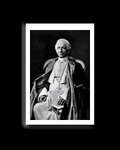
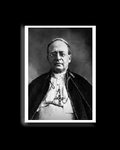

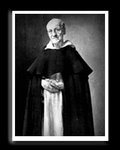
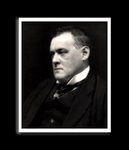
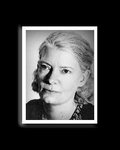
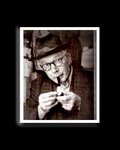
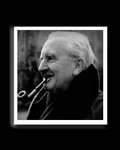





1 comment:
I love this information!!!! You have one of the best blogs on the net, I hope you don't mind that I linked you from my own blog.
Chris Johnson
www.chrisjohn06.wordpress.com
Post a Comment